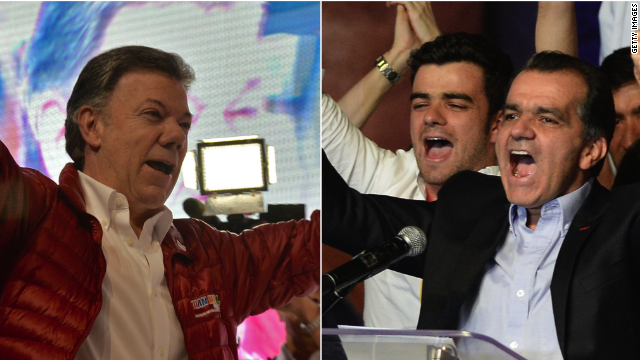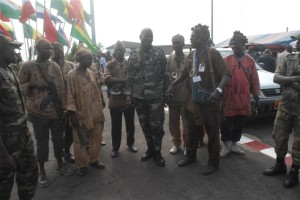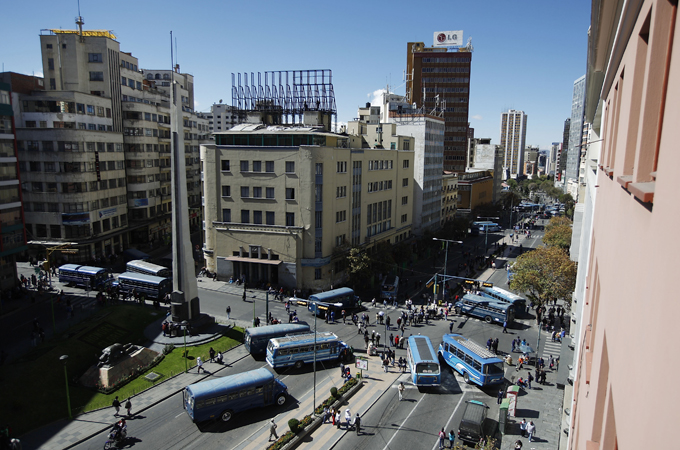By Delisa Morris
Impunity Watch News Reporter, South America

BOGOTA, Colombia – Colombians will be waiting for the presidential election results until after the June 15 runoff. As of Friday, the presidential race was too close to call between President Juan Manuel Santos and his challenger Ivan Oscar Zuluaga.
Many believe that the outcome of the presidential race will determine the fate of the country’s half-century guerilla war. President Santos has staked his reputation on peace talks between the Colombian government and the Marxist rebels. Hoping that peace talks that began with the FARC rebels in 2012, being held in Cuba, will end the 50-year conflict.
Presidential candidate Zuluaga, wants to implement tougher conditions, fearing that President Santos is being too lenient with the rebels. His appeal to voters has been that the talks could lead to little or no punishment for guerillas’ war crimes and hand them instant political power.
Imposing tougher conditions could cause the FARC to walk away, leaving a return to the military option the only alternative. Colombians are desperate for peace, but both candidates are selling extremes, forcing Colombians to choose between handing over the government to the rebels, leaving war crimes unpunished and a potentially endless war.
Since the conflict began in May 1964 at least 220,000 people have died. President Santos, 62 and Zuluaga, 55 are both economists. The presidential rivals are former cabinet colleagues under former president Alvaro Uribe and both support free market economics and continued close ties with the United States.
Santos began as a comfortable favorite before Zuluaga surged with the backing of former president Uribe, who is still popular amongst Colombians.
In a Gallup poll the candidates were neck-and-neck, but two other surveys showed a clear lead to Zuluaga or Santos.
The Gallup poll on Thursday showed the candidates in a dead heat statistically given the margin of error, with 48.5 percent for Zuluaga versus 47.7 percent for the president.
On Friday, a Cifras y Conceptos poll showed 43.4 percent of voter respondents would vote for Santos and 38.5 percent for Zuluaga, while the research firm Ipsos Napoleon Franco reported 49 percent to Zuluaga and 41 percent to Santos.
Clara Lopes, a leftist candidate defeated in the first round of voting with 15 percent of first rounds votes, publicly placed her support behind Santos.
FARC leader Rodrigo Londono, widely known by his war alias TImochenko, scoffed at both candidates, releasing a lengthy statement this week, saying they are both warmongers.
“Colombians face a real dilemma, but its not that they must choose between war with Oscar Ivan Zuluaga and peace with Juan Manuel Santos. It’s clear that either one of them represents war,” he said, calling for a “powerful coalitions” to the left to face whoever wins.
For more information, please see:
Reuters — Polls Show Cliffhanger Presidential Election in Colombia — 06 June 2014
Fecima — Polls Show Cliffhanger Presidential Election in Colombia — 06 June 2014
Newslocker — Polls Show Cliffhanger Presidential Election in Colombia — 06 June 2014
The Economist — Colombia’s Presidential Election: A Vote for Peace — 07 June 2014

